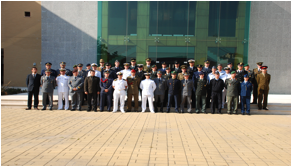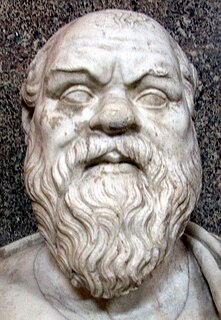 W
WThe Bologna Process is a series of ministerial meetings and agreements between European countries to ensure comparability in the standards and quality of higher-education qualifications. The process has created the European Higher Education Area under the Lisbon Recognition Convention. It is named after the University of Bologna, where the Bologna declaration was signed by education ministers from 29 European countries in 1999. The process was opened to other countries in the European Cultural Convention of the Council of Europe, and governmental meetings have been held in Prague (2001), Berlin (2003), Bergen (2005), London (2007), Leuven (2009), Budapest-Vienna (2010), Bucharest (2012), Yerevan (2015), Paris (2018), and Rome (2020).
 W
WDustPedia is a project funded by the European Union for exploitation of space science and exploration data. It is a collaboration of six European institutes with a primary goal of exploiting existing data in the Herschel Space Observatory and Planck Telescope databases. This data will be combined with other available data from both ground-based and space-based telescopes to make the most extensive and intensive study of galaxies in the nearby Universe.
 W
WeCOTOOL was an international project undertaken through the European Union's Lifelong Learning Programme, specifically the Leonardo da Vinci programme. As such, the eCOTOOL project primarily dealt with initial and continuing vocational education and training (VET) in the European Union.
 W
WThe Erasmus Programme is a European Union (EU) student exchange programme established in 1987. Erasmus+, or Erasmus Plus, is the new programme combining all the EU's current schemes for education, training, youth and sport, which was started in January 2014.
 W
WThe European Schools is an intergovernmental organisation, which has established, finances, and administers a small group of multilingual international schools, bearing the title "European School", which exist primarily to offer an education to the children of European Union (EU) staff; offers accreditation to other schools, bearing the title "Accredited European School", under national jurisdiction within EU member states to provide its curriculum; and oversees the provision of the secondary school leaving diploma, the European Baccalaureate.
 W
WThe House of European History (HEH) is a museum in Brussels, Belgium focusing on the history of Europe. The permanent exhibition begins with the myth of the goddess Europa, delving into Europe's ancient roots and the continent's heritage of shared traditions and achievements, before continuing through Europe's dramatic journey towards modernity in the 19th century and the rebuilding process following World War II. The final section challenges visitors to critically assess European history, its potential and its future.
 W
WThe Lifelong Learning Programme 2007–2013 was the European Union programme for education and training.
 W
WThe Military Erasmus Programme, formally the European initiative for the exchange of young officers inspired by Erasmus, is an initiative undertaken by the European Union (EU) member states aimed at developing the exchanges between armed forces of future military officers as well as their teachers and instructors during their initial education and training. Due to the fact that the initiative is implemented by the Member States on a purely voluntary basis, their autonomy with regard to military training is not compromised.
 W
WPLOTEUS is an acronym of Portal on Learning Opportunities Throughout European Space, meant to connote πλωτηρ (ploter) which means "navigator" in ancient Greek. It is a European Union web portal, coordinated by the European's Commission Directorate-General for education and culture, that aims to help citizens find out about education and training opportunities, throughout the countries belonging to the European Union, Switzerland, Iceland, Norway and Turkey, though the latter did not participate in PLOTEUS at its launch, as it was not a member of the Leonardo da Vinci programme yet. According to France 5, the portal offers an "easy access" to an "excellent source of information" from primary school to postgraduate education. PLOTEUS has been prioritised as a "project of common interest" by the European Commission. The European Parliament and the European Council have confirmed in 2006 their "support for transnational web-based services such as PLOTEUS". The portal is run by the Euroguidance network, financed by the Leonardo da Vinci programme, and is interconnected with EURES, the European Commission's portal on job mobility information. Both PLOTEUS and EURES are considered as examples of "pan-European services". After the launch of PLOTEUS and EURES in 2003, the Bologna process drive to favour student mobility in Europe wa further expressed in 2004 by the launch of the Europass program, which is accessible from the EURES portal, as well as PLOTEUS.
 W
WThe SOCRATES programme was an educational initiative of the European Commission; 31 countries took part. The initial Socrates programme ran from 1994 until 31 December 1999 when it was replaced by the Socrates II programme on 24 January 2000, which ran until 2006. This, in turn, was replaced by the Lifelong Learning Programme 2007–2013.
 W
WThe TEMPUS program encourages higher education institutions in the EU Member States and partner countries to engage in structured cooperation through the establishment of "consortia". The "consortia" implement Joint European Projects (JEPs) with a clear set of objectives. Such projects may receive financial aid for two or three years. Tempus also provides Individual Mobility Grants (IMGs) to individuals working in Higher Education sector to help them work on certain specified activities in other countries.